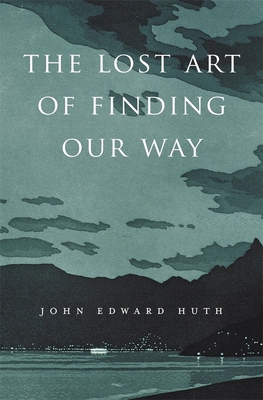
The Lost Art of Finding Our Way
Interview with John Edward Huth
March 21, 2017Sign Up to listen to full interview.
About John Edward Huth
John Edward Huth is Donner Professor of Science in the Physics Department at Harvard University.
Interview Summary
Today and just as thousands of years ago we are constantly finding our way in our environment. We commute, travel short distances or sometimes take long road trips with the help of modern technology and devices and constantly accessing the GPS on our phones.
However, our distant ancestors travel vast distances using primitive technology, but still effective today, and above all being constantly aware of the surroundings and reading environmental clues. Navigation systems developed by many cultures, long before the advent of modern technologies, worked then and today.
In an interview with Readara, professor of Physics at Harvard University John Edward Huth examines three early navigation cultures and various ways humans are able to navigate, using simple instruments and environmental clues. Huth dissects three early Viking explorers, Arab traders and Pacific Islanders and their use of sun, stars, winds and waves in guiding their journeys.
Huth also urges all of us to be more aware while we are on the move and use simple techniques of reading environmental clues and accumulate route and survey knowledge.
With the overreliance on latest phone gadgets and GPS we are increasingly at risk of being detached from our surroundings and losing the art of reading environmental clues that may one day mean a difference between life and death. We all can improve our navigational understanding by being aware and mindful.
Humans absorb subtle environmental clues to find their way, we just have to be prepared to notice and use them.
Key Topics
- How did people navigate before the Industrial Revolution?
- What skill sets are needed to navigate long distances?
- What devices and practices guided the three early cultures of navigation?
- How did Arab traders learn to read winds?
- Why did Pacific islanders rely on wave clues?
- How did the Norse culture learn to follow the Sun and decipher the positions of stars?
- How does the use of GPS affect our natural ability to navigate and our capacity to generate a mental map of the world?
- How does mental mapping and spatial memory help when we are more aware and engaged while navigating?
